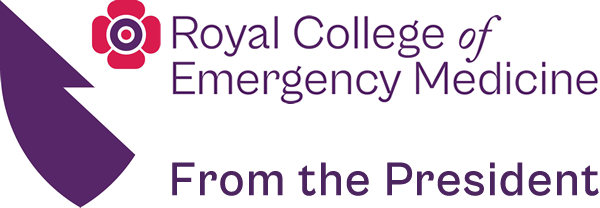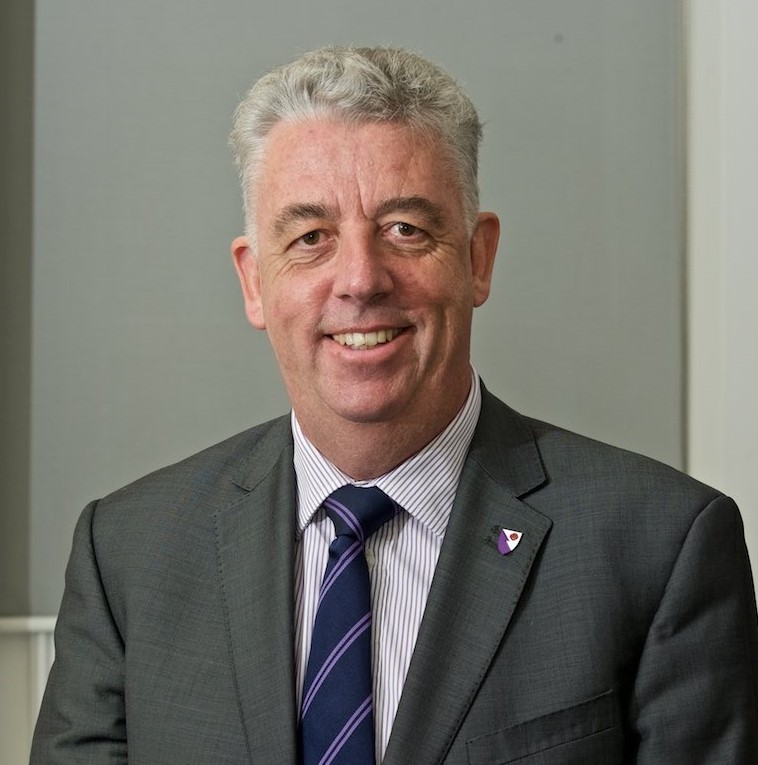Although you are reading this in November, as I write I have just returned from the RCEM Annual Scientific Conference in Manchester. It was quite an event! Our largest ever conference with more than 750 delegates, it showcased world-class speakers and the value, benefit and outcomes of emergency medicine research. So popular were many of the sessions in various tracks that it proved impossible to accommodate everyone in the various sessions – the forbearance of all concerned reflected well on the character of EM doctors.
Special mention of gratitude must go to Rick Body and the local organising committee as well as Natalie Choi and her team at RCEM HQ. Never a specialty to let the grass grow under our feet, our thoughts now turn to 2016 with the Spring meeting in Leeds and the Autumn meeting at Keele University.
The conference was a marvellous opportunity to meet so many fellows and members from across the UK and Ireland. Much of the conversation reflected concerns related to on-going contract negotiations. I have said much on this matter previously and it is to be hoped that by the time you read this, good progress will have been made.
There was of course some time in the evenings for social activity. This was in fact the first time that the RCEM President’s medal (aka ‘The Bling’) has been seen on a dance floor (albeit briefly and not necessarily moving in time to the music).
Another personal highlight was a brief sojourn to a local hostelry and the discovery of a juke box that contained what must be the last surviving copy of Brian and Michael’s single chart hit ‘Matchstalk Men and Matchstalk Cats and Dogs’ which spent 3 weeks in the charts in 1978! The year I sat my O levels.
Many readers will no doubt be bemused by such historical references – I would refer them to Wikipedia for further explanation. Suffice to say the Lowry theme was wonderfully depicted at the evening reception at the Manchester Art gallery.
No event ever passes off without incident and in this case it was the AV system that conspired to both frustrate and amuse – often simultaneously. The wonderful elegiac yet motivational film produced by Dan Henning proved too much for the hardware and my own opening presentation therefore took place without the PowerPoint slides. Reduced to describing what some of the slides had intended to show, the effect was similar to ‘fireworks on the radio’! Again the EM cadre rose to the challenge with both the presenter and the audience agreeing it was probably better this way!
Less amusing was my own journey home. As Airforce One was inexplicably unavailable I was booked on to the 20.25 flight to Exeter with FlyBe. My shortest ever flight of 45 minutes was disproportionately affected by my longest ever flight delay of three and a half hours – a similar ratio to the average ‘decision to admit time’ and the ‘time in department’ of patients on a Monday afternoon!
Which leads me nicely to the RCEM Winter Flow project. We learnt last year the power of owning our own data with the Sentinel Sites project that dispelled the myth that 40% of ED patients don’t need to be there. This year we seek to make transparent the link between the Four Hour Standard performance and bed availability. We currently have 70 trusts from all four nations of the UK who have agreed to share their data on four hour performance, cancelled elective operations and delayed transfers of care. We will be reporting the aggregated data on a weekly basis and showcasing the results at our 2nd National EM Clinical Leaders Day on December 1st. Last year we had 120 departments represented – I hope to welcome even more to the British Library this year. If you haven’t registered to attend please contact the events team at RCEM HQ.
By now Winter will be almost upon us and the toxic effects of chronic understaffing and rising numbers of patients will yet again challenge every trust and every EM doctor. Each trust will be caught in the irreconcilable choice of safe and effective services or financial balance. At the RCEM leaders day last year I quoted Churchill – not to self aggrandise – but because of the aptness of his assessment. In the winter of 2014 and the launch of the STEP campaign we had reached ‘the end of the beginning’. We now find ourselves in the most difficult of times. The college has sought to provide solutions, create a consensus, recruit allies and rebuild emergency medicine in the UK. 2016 will see the outcome of our endeavours. It is my hope that whoever succeeds me in the role of President next year will bear witness to better times.
Dr Cliff Mann FRCEM FRCP
President
The Royal College of Emergency Medicine
@RCEMPresident


